International companies faced a dilemma in the wake of Russia’s invasion of Ukraine: to leave the country in protest of the war and take a financial hit, or stay and risk significant reputational damage.
While some departed immediately after Russian troops entered Ukraine, others tried to hang on — only to announce their exit under public pressure months later.
For those that did leave, their exits took different forms: mothballing their operations, handing assets to trusted partners, or carefully structuring deals in order to allow for a return in the future.
In total, more than 1,000 foreign companies have voluntarily curtailed their operations in Russia over the past year, according to a database compiled by researchers at Yale University. Their exits have meant many significant changes for Russian consumers.
Yet hundreds more remain. In some cases, companies have even expanded their operations in Russia, seeking to seize market share from departing firms.
The Moscow Times picked nine multinational companies — some that left and some that stayed — and analyzed how they responded to Russia’s invasion.
McDonald’s
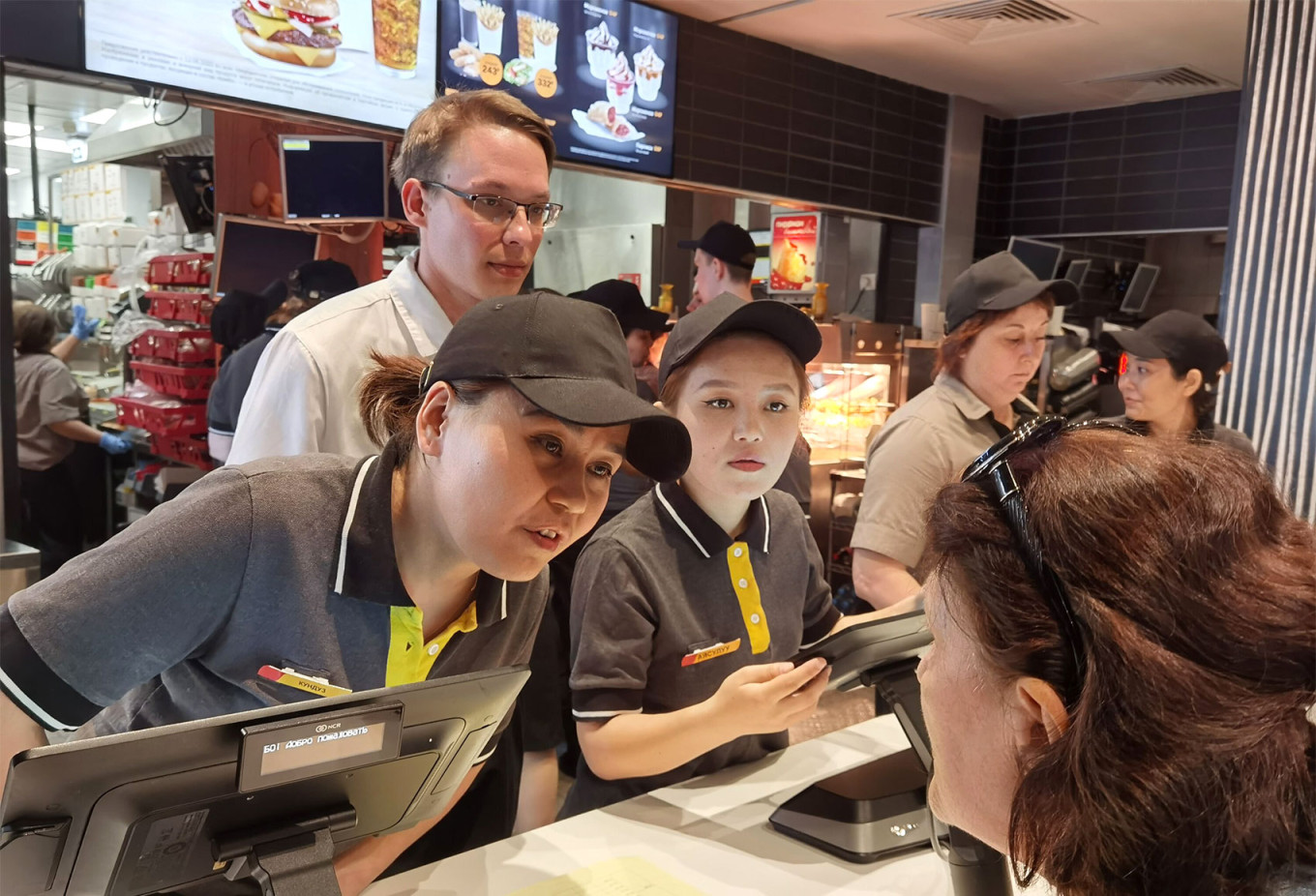
For many Russians, U.S. fast food giant McDonald’s symbolized the arrival of Western consumer capitalism in Russia in the 1990s — and its departure marked the end of an era.
McDonald’s temporarily shuttered its restaurants in March and, two months later, it announced its permanent exit from Russia. The decision to leave was “extremely difficult,” McDonald’s CEO Chris Kempczinski said at the time. “However, we have a commitment to our global community and must remain steadfast in our values.”
McDonald’s sold its 850 restaurants to Alexander Govor, a billionaire who already operated 25 licensed locations in Siberia. In mid-June, the McDonald’s flagship restaurant in Moscow, its first location that opened at the twilight of the Soviet Union, reopened under a new name: Vkusno i Tochka (Tasty — Period). Other outlets quickly followed suit.
Most of the rebranded restaurant’s menu has remained the same — although names of trademarked items like “Big Mac,” “Big Tasty” and “McFlurry” are gone and there is a new logo.
Govor has said he will increase the number of Vkusno i Tochka restaurants from 850 to 1,000.
Valio
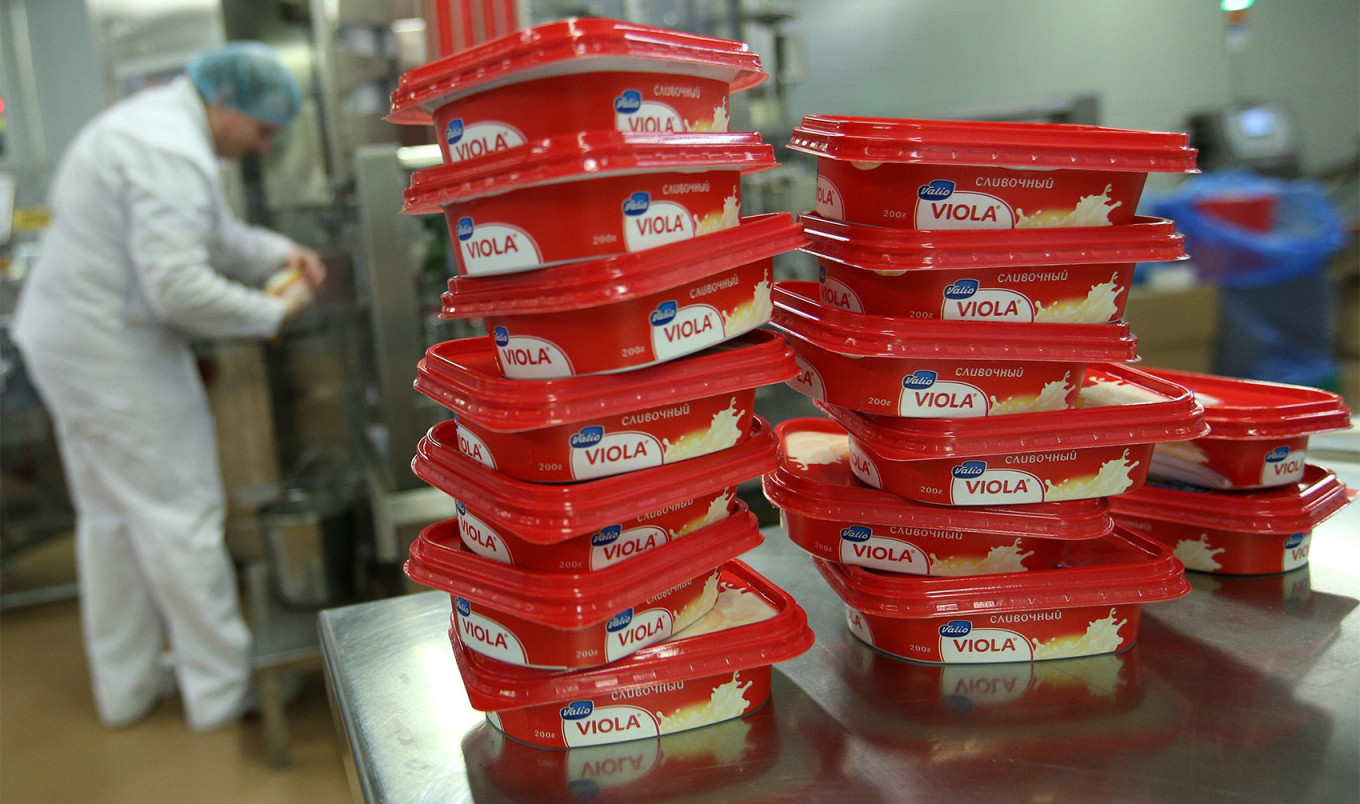
Finnish dairy manufacturer Valio said it was leaving Russia just two weeks after the Kremlin ordered troops into Ukraine. “We strictly condemn Russia’s attack on independent Ukraine,” Valio President Annikka Hurme said at the time. “Ethically, Valio cannot continue operations in Russia; therefore, we are ending business operations in Russia.”
At the end of April, Valio sold its Russian assets to local food manufacturer Velkom Group.
Among the Valio products withdrawn when the company departed were lactose-free milk and baby food from the company’s Oddlygood product line.
“Valio’s baby milk formula was the only one my baby wasn’t allergic to. When I heard that Valio was leaving Russia I bought 20 packages at once, unfortunately I couldn’t afford to buy more, otherwise I would,” said Oksana Milina from St. Petersburg.
“Fortunately, I have some friends who have Finnish passports and when they went to Finland… they bought things I needed for my child,” she told The Moscow Times.
Bonduelle
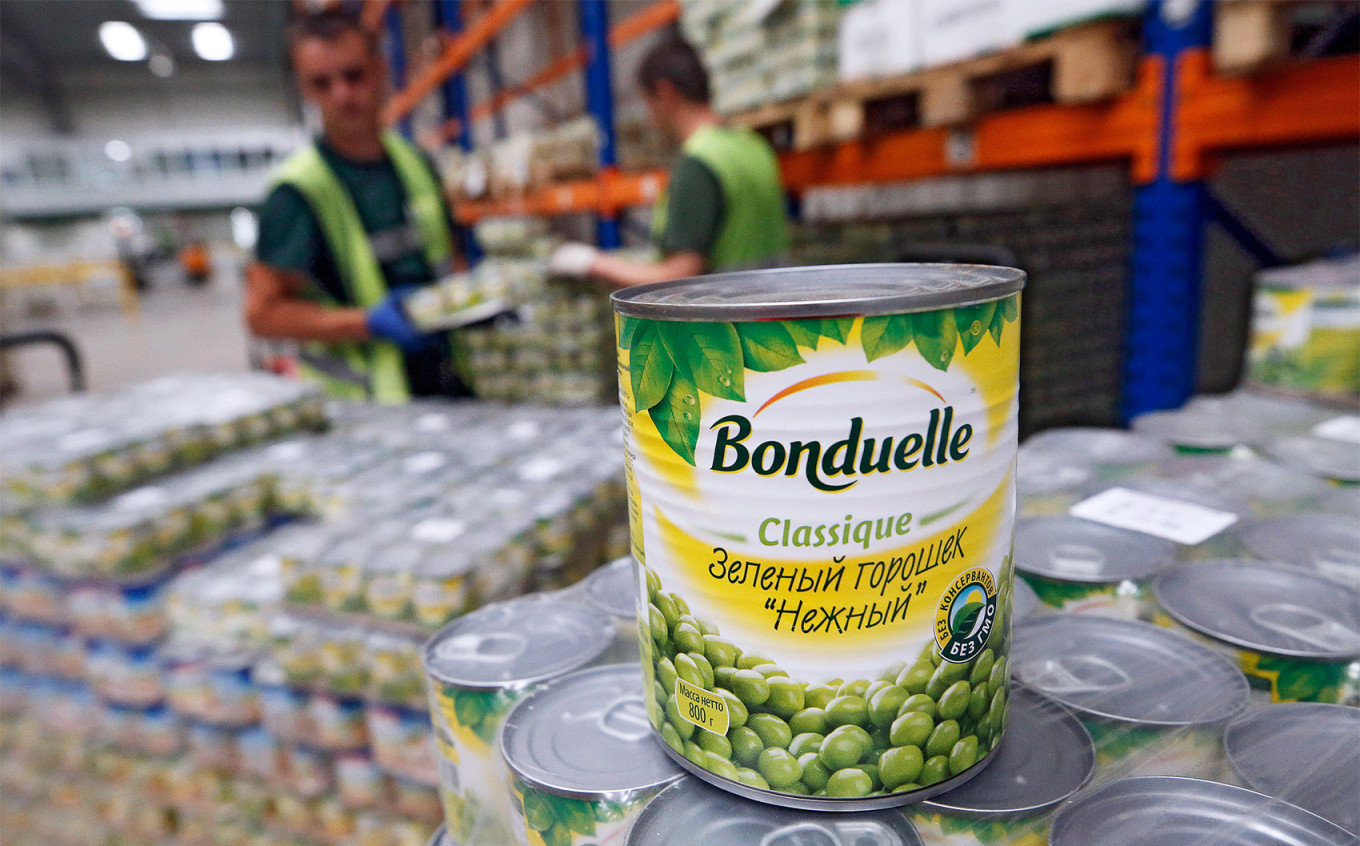
The French producer of frozen and canned vegetables entered the Russian market in 1994 and employs more than 1,000 people in the country.
It has refused to leave despite the Ukraine war, citing risks to food security.
However, the company has faced a series of reputational blows for maintaining a presence in Russia. A now-deleted message appeared in December on Russian social network VKontakte saying Bonduelle had given over 10,000 food baskets to Russian soldiers in Ukraine. A few days later, Ukraine’s National Agency for the Prevention of Corruption called for international sanctions against Bonduelle.
Although Bonduelle denied the story entirely, dubbing the VKontakte post a “fake,” some Ukrainian supermarkets — including Varus, Novus, ATB and Auchan Ukraine — removed Bonduelle products from their stores nonetheless.
Nissan
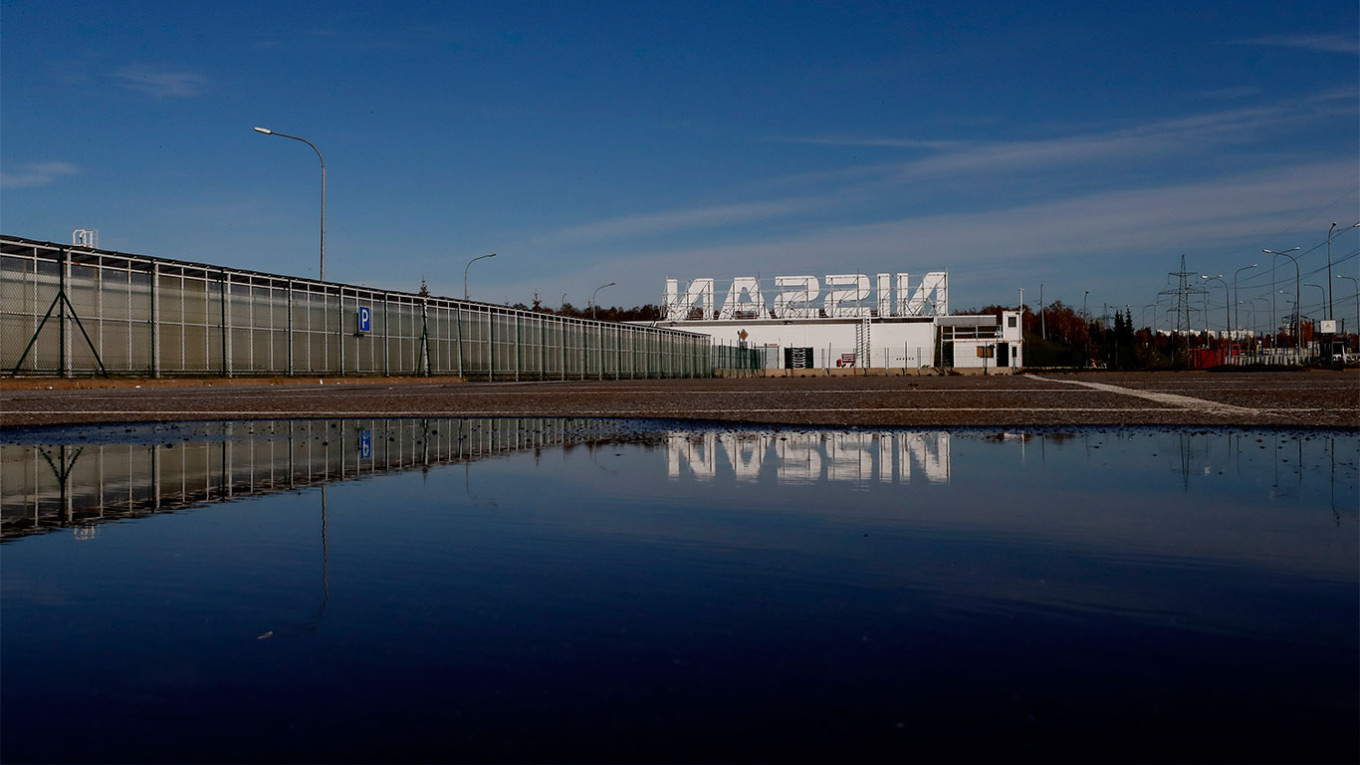
Japanese automaker Nissan suspended manufacturing and imports into Russia in March, but dithered for seven months over what to do next.
Finally, the company announced an asset transfer to a local partner.
The automaker said the transfer included Nissan Manufacturing Russia, as well as local manufacturing and R&D facilities in St. Petersburg and sales and marketing in Moscow.
Nissan handed over its business to state-owned entity NAMI for just 1 euro ($1.08) and the deal gives Nissan the right to buy back the business within six years. “We have found the best possible solution to support our people,” Nissan head Makoto Uchida said in a statement at the time.
Nissan was one of the last foreign automakers to exit Russia.
United Colors of Benetton
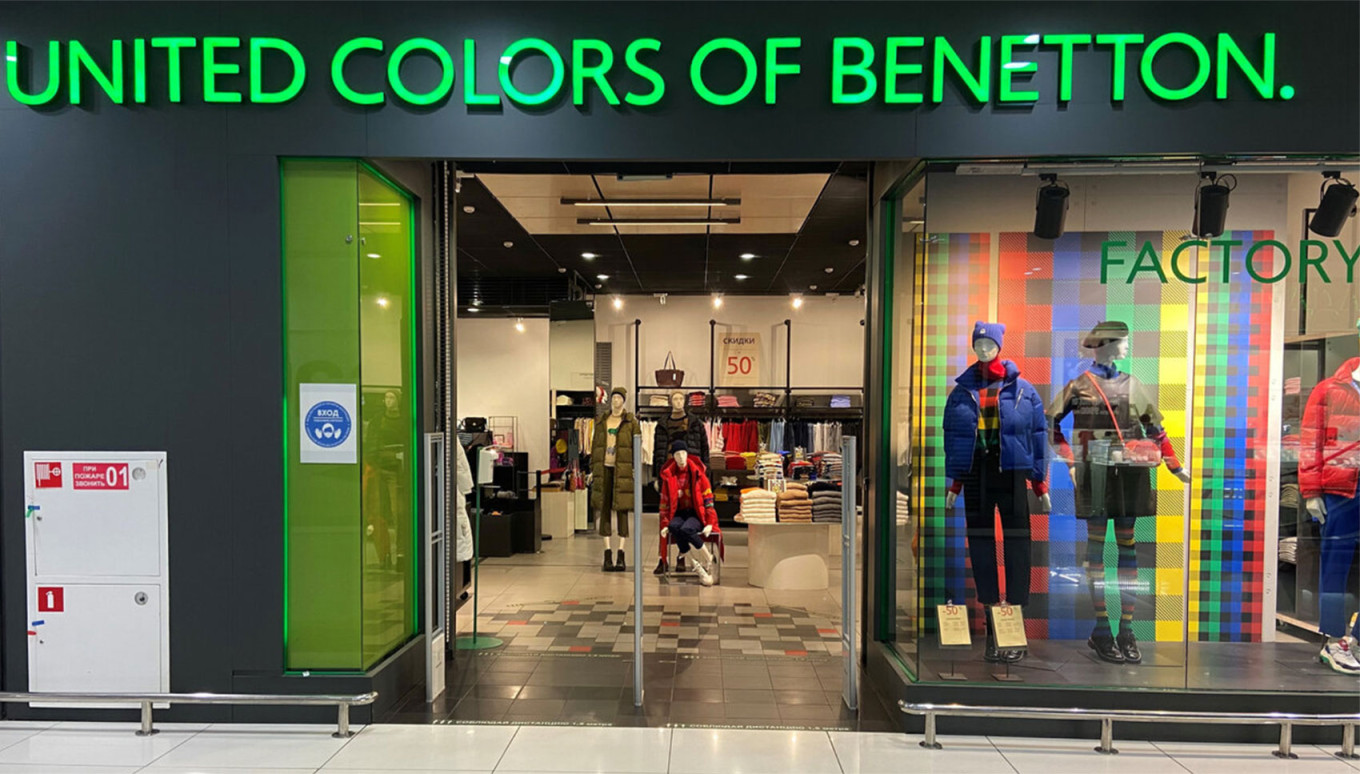
After Russia sent tanks into Ukraine, Italian clothing retailer United Colors of Benetton said it would “suspend all its development business plans in Russia,” donate clothes to Ukrainian refugees and provide support to Ukrainian refugees in Italy.
At the same time, however, it continued to operate as normal in Russia.
The Yale University researchers tracking Western companies in Russia have highlighted that four major Italian fashion brands — Benetton, Armani, Diesel and Calzedonia — have all carried on working in Russia without any significant changes.
Philips

In November, Dutch electronics and technology giant Philips found itself on a boycott list put together by Ukrainian Foreign Minister Dmytro Kuleba due to its decision to continue operating in Russia.
Shortly after, Philips released a statement criticizing Russian military aggression and claiming it had reduced its activities in Russia, including halting shipments of its consumer health products (except for certain baby care products) and suspending marketing activities.
“We are focusing our remaining activities in Russia on the delivery of medical systems, devices and spare parts to health care providers,” the company said.
However, it is not just medical devices that remain available on Philips’ Russian online store: as of early February, Russians could still buy coffee machines, hairdryers and TV sets.
Wella
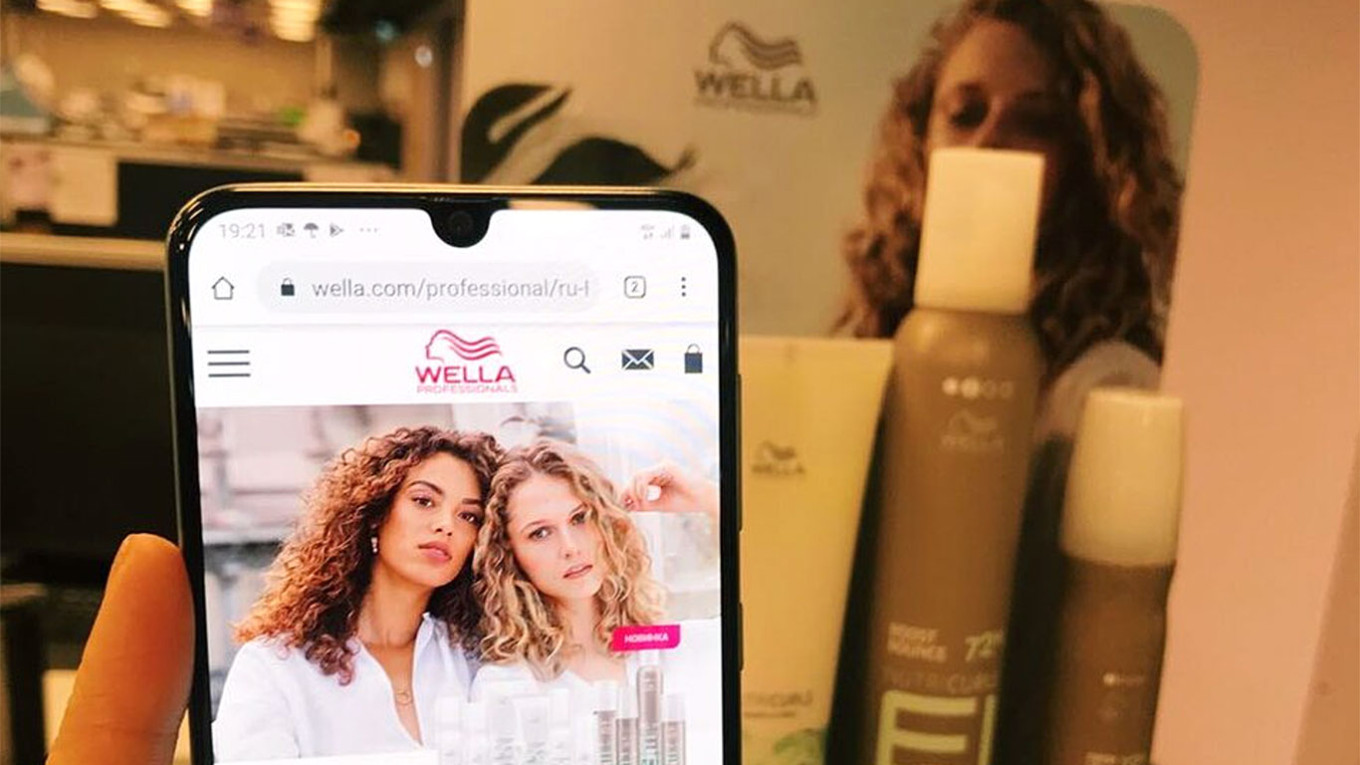
German cosmetics manufacturer Wella announced in May that it was halting deliveries to Russia after almost 30 years.
Russian businesses have apparently had a hard time finding substitutes for Wella hair products, which were very popular in Russian beauty salons.
“We have been working with Wella products for more than 15 years,” said Irina Dimchenko, the owner of a chain of beauty salons in Moscow.
“Many of our regular clients didn’t want another hair dye, but starting from September all our stocks had run out and we had to find alternatives… Fortunately, there is still a big choice of good, professional hair products,” she told The Moscow Times.
“I used to work in the Soviet Union when there were no normal hair dyes at all and I am really afraid that we could return to that again.”
Cofix
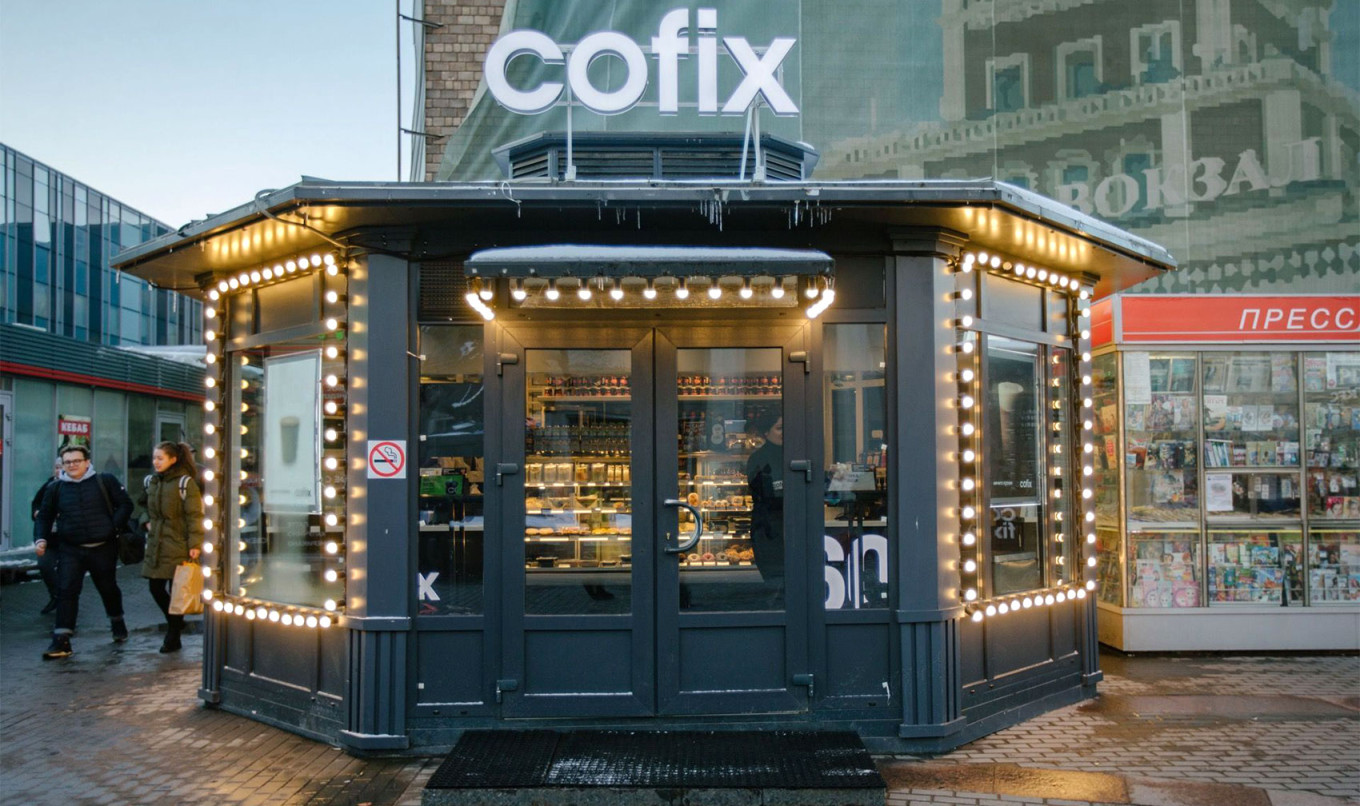
The Israeli coffee chain is one of Russia’s market leaders with more than 270 coffee shops in cities from Moscow and St. Petersburg to Irkutsk in Siberia and Sochi on the Black Sea.
Forbes Russia last year listed Cofix among Russia’s 10 most profitable franchises worth over 5 million rubles. And it was included on a list of the top 10 coffee chains visited by Russians following Starbucks’ exit, according to research by media outlet RBC.
Cofix has made no official statement on their position toward the invasion and appears to not be planning to leave. On the contrary, it announced expansion plans in August.
L’Occitane
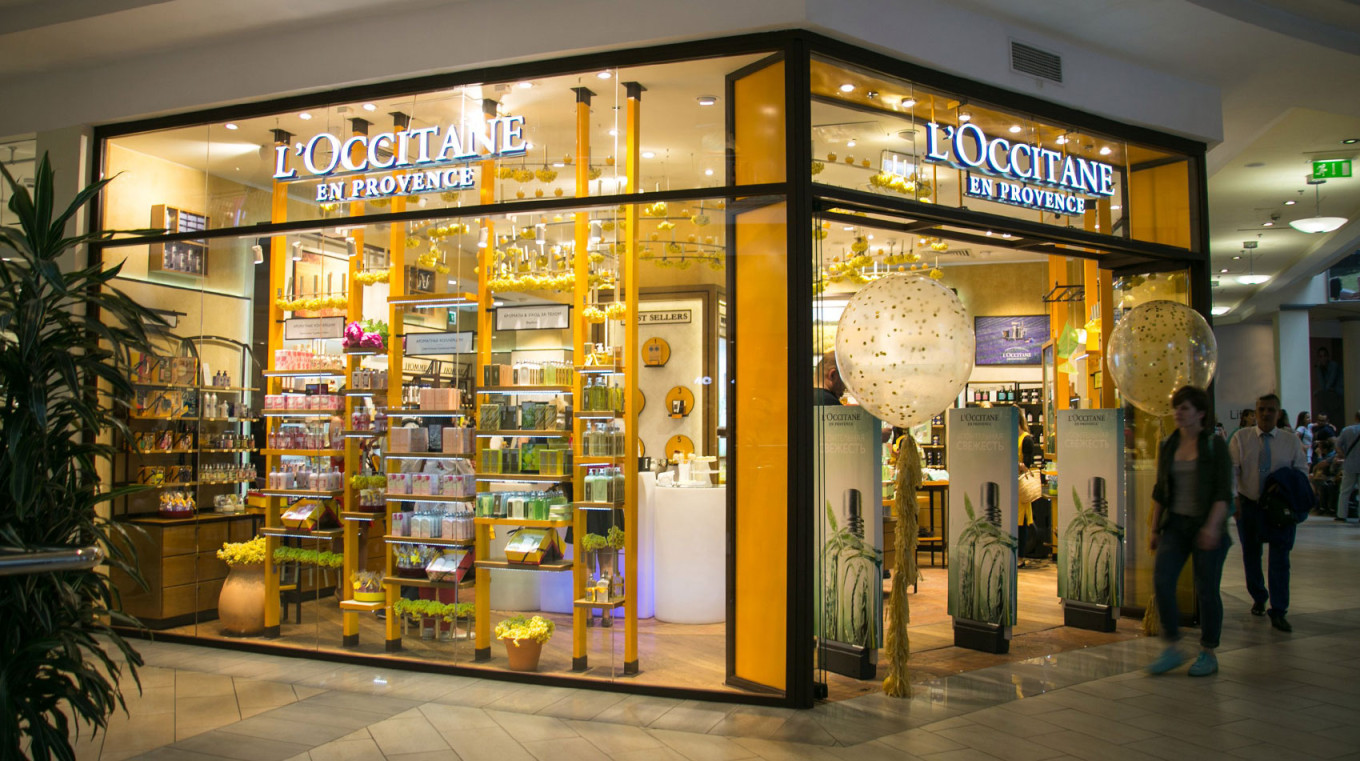
In the weeks after the invasion, French beauty brand L’Occitane said it wouldn’t leave Russia, claiming it wanted to protect its local staff from “retaliation.” But public criticism led to L’Occitane announcing the closure of its Russian stores.
In a statement, the company condemned the invasion of Ukraine and said it would no longer conduct any operations in Russia — nor supply products to Russian retailers.
But this was not the end of the L’Occitane saga. By June, the company had reportedly changed its plans once again, deciding to return to Russia under the name “L’Occitane” (although it was now written in Cyrillic). Rostislav Kovalenko, the ex-head of the company in Russia, and three top managers became the owners of the revamped chain.
This means that while L’Occitane is no longer operating in Russia on paper, nothing has changed for Russian customers. All of the company’s 112 stores remain open — and the products they sell are exactly the same.